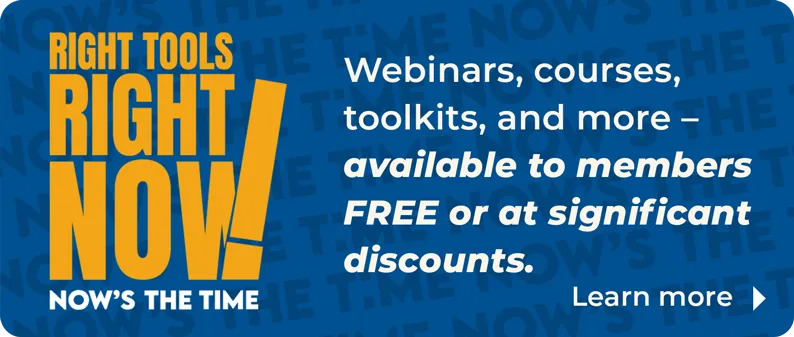MLSs and their Members Struggle to Weigh the Pros and Cons of Syndication Options While Seeking More Control Over Listing Data
REALTORS® want something done about the perceived injustices within the online property listing ecosystem (Zillow, Trulia, ListHub, Point2, and others), many AEs say. They complain to their MLSs about listings appearing on sites where they didn’t expect them, paid ads for agents next to their listings, leads are sold back to them, property information that is often misleading, and advertising program rules that constantly shift. While many MLSs say it’s not their responsibility to do anything about it, others are taking on these issues with a variety of approaches.
A few MLSs have stopped syndicating members’ listings, and at least one is sending listings only after a 48-hour delay. Some MLSs have expanded their syndication services and others actively negotiate with syndicators or portals over how member listings are displayed. There’s movement in all directions. Yet one point is clear, MLS executives say: Members must drive the decisions about their own listings.
“Even if you don’t end up making changes, the syndication decision is something every MLS should be thinking about,” says Marilyn Wilson, founding partner of WAV Group, a real estate industry consulting firm. She recommends reaching out to members—not only large brokers but a healthy sample of the smaller, independent brokers who are more reliant on MLS support—to find out not only what they know about where their listings go, but also what they want the MLS to do. If there is a diversity of opinions, consider forming a task force with all sides well represented.
“A Lot of Folks Thought We Were Crazy”
Complaints from members and customers about incorrect listing data on portal sites pushed the issue of syndication to the forefront at the Huntsville Area Association of REALTORS® and its subsidiary, the North Alabama Multiple Listing Service, CEO Kipp Cooper says.
In response, NAMLS set up a task force that polled members about what they wanted from the listing portals. Based on the responses, the task force drafted a model agreement that required each portal receiving MLS data to prominently display the name of the listing agent, to prioritize MLS data above any competing data source, and to include a link back to the NAMLS site for more detailed information.
“A lot of folks thought we were crazy,” Cooper says, and for a brief period in fall 2013, NAMLS was “dark in the market” after it pulled the plug on feeding data to the portals. However, once the major portals understood that they were not going to receive any more data from NAMLS, they agreed to the terms.
“To date, we’ve earned well over a quarter of a million dollars for members in free advertising,” Cooper says referring to the display of the listing agent’s name with the listing, which is typically a paid premium feature on most portals.
“In the very beginning, there were some concerns with the major franchises, which have their own private agreements with the portals, but we don’t interfere with that. We don’t dictate to anyone,” Cooper says. Broker participation in the MLS data syndication is steadily increasing, which makes it a win for the portals as well, he notes.
“The biggest issue was making sure that we had member buy-in and that members understood the consequences of doing nothing versus doing something.”
Understanding the Portals Role?
“The manner in which some third-party listing portals manipulate the brokers’ data is harmful to all of us in real estate,” says Paul Hilgers, president of the Austin Board of REALTORS®. This was part of the reason the association’s MLS decided to no longer play an official role in syndication to non-REALTOR® listing portals, yet not stand in the way of members who felt these portals were the right choice.
Austin’s listings will appear on realtor.com® and member websites, and many large brokerages have separate syndication agreements directly with the major portals. Hilgers says it’s too early to tell how many brokerages will syndicate their listings to the major portals on their own. “We are working to develop the systems necessary to monitor this and will keep a close eye on our membership’s response to this transition.”
The Wilmington Regional Association of REALTORS® in North Carolina recently announced that it is following in Austin’s footsteps and ending its relationship with syndicator ListHub. Yet in 2013, roughly three dozen MLSs signed on with ListHub making it the company’s best year for attracting new partners.
Negotiating Terms with Portals
The Houston Association of REALTORS® technology task force broke new ground this year while negotiating a unique deal with ListHub. In the arrangement, ListHub feeds listings from other Texas MLSs to HAR’s popular public-facing listing website HAR.com, turning it into a statewide portal. In return, HAR syndicates its members’ listings via ListHub, not directly to the portals.
ListHub will provide weekly referral reports to participating agents that are far more detailed and useful than its standard reports, says Bob Hale, HAR’s president and CEO.
“We put together a more thoughtful listing procurement agreement, and we’re spending money on it. We’re paying to have syndication implemented the way we want it implemented,” says Hale.
Negotiating terms of display with syndicators and portals in exchange for listing information is on the rise nationwide as more MLSs, franchises, and brokerages seek to regain a bit of control over the display of listing data online.
Last year, The Realty Alliance, a national network of large residential brokerages, issued its “Fair Display Guidelines” for MLSs’ public-facing websites, which many MLSs have been using as a model to negotiate terms with syndicators and portals. Houston says its agreement with ListHub adheres to The Realty Alliance guidelines.
Craig Cheatham, president and CEO of The Realty Alliance, however, sounds a cautionary note, raising questions about whether dealing with syndicators is an appropriate function for an MLS.
“Associations and MLSs should be wary of making blanket business decisions for brokers, and this would be true no matter the firm size or business model. Ideally, practitioners would have local control on all aspects of data sharing, from where it goes to the terms of the agreement the recipients of the data must sign,” he says.
Keep Members in the Know
Educating members on their syndication options and monitoring their use and opinions of syndication is key to making informed decisions about which role an MLS should take in the issue.
“We monitor members’ use of the ListHub syndication dashboard and graph on a monthly basis the number of listings going to syndication versus direct feed to realtor.com® or IDX,” says John Holley, CEO of the North Texas Real Estate Information System.
Although the syndication debate is not a hot topic among his members, Holley still plans to set up a task force to monitor the issue.
Allan Hetkowski, RCE, CAE, CEO at the Greater Scranton Board of REALTORS®, Pa., recently switched his MLS syndication agreement with ListHub from “opt out” to an “opt in” to ensure members make more informed decisions. Many agents don’t always realize they can select which portals, if any, receive their listings, he notes.
At Metro MLS in Milwaukee, CEO Chris Carrillo says, “We have found that often brokers simply create an account on ListHub, ‘select all’ on portal destinations and forget about it. This creates a real education disconnect on new portals added by ListHub and brokers not knowing where their listings are going.”
MLS executives should monitor portals added and removed to the syndicator menu on a monthly basis, he says. “You may find some portals that have been added do not fit into your market in a complementary way. MLSs are still responsible for where their content ends up.”








